
Eye Guess was an American game show created by Bob Stewart and hosted by Bill Cullen, which aired on NBC from January 3, 1966, to September 26, 1969. The game combined a general knowledge quiz with a Concentration-style memory element, where the answers were shown to the players and their recall of their positions was tested.
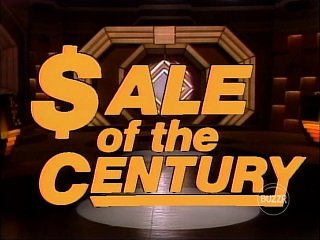
Sale of the Century is an American television game show that originally debuted on September 29, 1969, on NBC daytime. It was one of three NBC game shows to premiere on that date, the other two being the short-lived game shows Letters to Laugh-In and Name Droppers. The series aired until July 13, 1973, and a weekly syndicated series began that fall and ran for one season.

Winning Streak is an Irish television game show. The show was broadcast weekly in Ireland between 1990 and 2020 on RTÉ One. Typical episodes of the show would see contestants take part in a number of games to win cars, holidays, and cash prizes up to €500,000.
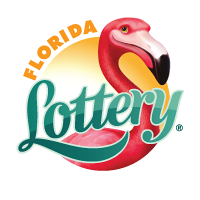
The Florida Lottery is the government-operated lottery of the U.S. state of Florida. As of 2022, the lottery offers eleven terminal-generated games: Cash4Life, Mega Millions, Powerball, Florida Lotto, Pick 2, Pick 3, Pick 4, Pick 5, Fantasy 5, Cash Pop, and Jackpot Triple Play.

The Pennsylvania Lottery is operated by the Commonwealth of Pennsylvania. The Lottery was created by the Pennsylvania General Assembly on August 26, 1971; two months later, Henry Kaplan was appointed as its first executive director. The Pennsylvania Lottery sold its first tickets on March 7, 1972 and drew its first numbers on March 15, 1972.

A scratchcard is a card designed for competitions, often made of thin cardstock or plastic to conceal PINs, where one or more areas contain concealed information which can be revealed by scratching off an opaque covering.

The New Zealand Lotteries Commission, trading as Lotto New Zealand since 2013, is a Crown entity that operates nationwide lotteries in New Zealand. It was established in 1987 and operates under the Gambling Act 2003. Its oldest and most popular game is Lotto, which boasts a top prize pool of NZ$4 million. Other games include the four-draws-daily Keno, the daily Bullseye, and a variety of scratchcards and online games known as Instant Kiwi. Instant Kiwi may only be played by persons 18 years of age or older, under the Gambling Act 2003. Powerball and Lotto Strike are optional extras with every Lotto ticket.

A pull-tab is a gambling ticket for a pull-tab game. Other names for the game include Break-Opens, Nevada Tickets, Cherry Bells, Lucky 7s, Pickle Cards, Instant Bingo, Bowl Games, or Popp-Opens.
The Iowa Lottery Authority is run by the state of Iowa. It is a member of the Multi-State Lottery Association (MUSL), which administers games on behalf of the member lotteries. The Iowa Lottery portfolio includes Powerball, Mega Millions, Lotto America, Lucky for Life, Pick 3, Pick 4, plus numerous instant scratch ticket, InstaPlay and pull-tab games.

The Idaho Lottery began play on July 19, 1989, and is run by the government of the state of Idaho. It is a member of the Multi-State Lottery Association (MUSL). Fifty percent of all net funds is given to public schools, while the remainder is pledged to the Permanent Building Fund, which is used as a financial resource for the state's colleges and universities.

The Connecticut Lottery Corporation, also called the CT Lottery, is the official lottery in Connecticut. It was created in 1971 by then-Gov. Thomas Meskill, who signed Public Act No. 865. The first tickets were sold on February 15, 1972. The Connecticut Lottery offers several in-house drawing games; Connecticut also participates in Mega Millions and Powerball; each are played in 44 states, the District of Columbia, and the U.S. Virgin Islands.

The New Jersey Lottery is run by the U.S. state of New Jersey. Its In-house draw games are: Pick-3, Pick-4, Jersey Cash 5, Pick-6, Quick Draw, and Cash Pop. Its multi-jurisdictional draw games are: Cash4Life, Mega Millions, and Powerball. The Lottery also sells Fast Play and scratch-off tickets. The New Jersey Lottery is headquartered at One Lawrence Park Complex in Lawrence Township, Mercer County.
The Louisiana Lottery Corporation (LLC) is a government-run lottery that is used to generate revenue without increasing taxes. The proceeds of the Lottery go to the Minimum Foundation Program that funds public education in Louisiana. The daily activities involved with running the cooperation are handled by the president of the Louisiana Lottery Cooperation. The president is under the supervision of the Lottery's nine-member governing board of directors.
The Michigan Lottery offers numerous on-line and scratch-off games, giving players a wide variety of prize possibilities. Initiated under the authority of Public Act 239 in 1972, the games collect funds to support Michigan’s public school system.

The Kentucky Lottery, began in April 1989 after a November 1988 vote in which over 60% of voters cast ballots in favor of it. On April 4, 1989, ticket sales began at over 5,000 licensed retailers with over $5 million in sales on the first day. Kentucky Lottery players had two Scratch-off games to choose from, including, Beginner's Luck ($1) and Kentucky Derby Dreamstakes ($2).
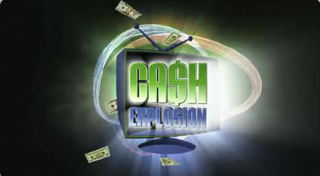
Cash Explosion, known as Cash Explosion: Double Play from 1989 until 2012, is the official Ohio Lottery TV game show, which is broadcast on television stations throughout Ohio. The show originated in Cleveland and is now taped by Mills James Productions in Columbus, Ohio.

The National Lottery is operated by ITHUBA Holdings, to whom the licence was granted in 2015. The lottery is regulated by the National Lottery Commission, and was established in 2000.
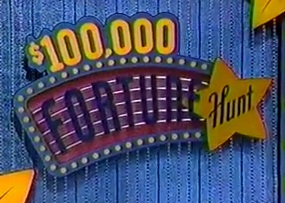
100,000 Fortune Hunt is an American lottery-based game show originating in the state of Illinois. It debuted on September 16, 1989, and aired on Saturday evenings from 1989 to 1994 on WGN-TV in Chicago ; it was also broadcast on WGN's national satellite feed. Jeff Coopwood hosted the first season, with the rest of the run being hosted by Mike Jackson. Linda Kollmeyer served as the hostess during the entire run with Bill Barber as the announcer.
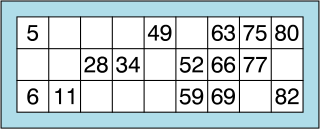
Bingo is a game of probability in which players mark off numbers on cards as the numbers are drawn randomly by a caller, the winner being the first person to mark off all their numbers. Bingo, also previously known in the UK as Housey-Housey, became increasingly popular across the UK following the Betting and Gaming Act 1960 with more purpose-built bingo halls opened every year until 2005. Since 2005, bingo halls have seen a marked decline in revenues and the closure of many halls. The number of bingo clubs in Britain has dropped from nearly 600 in 2005 to under 400 as of January 2014. These closures are blamed on high taxes, the smoking ban, and the rise in online gambling, amongst other things.















